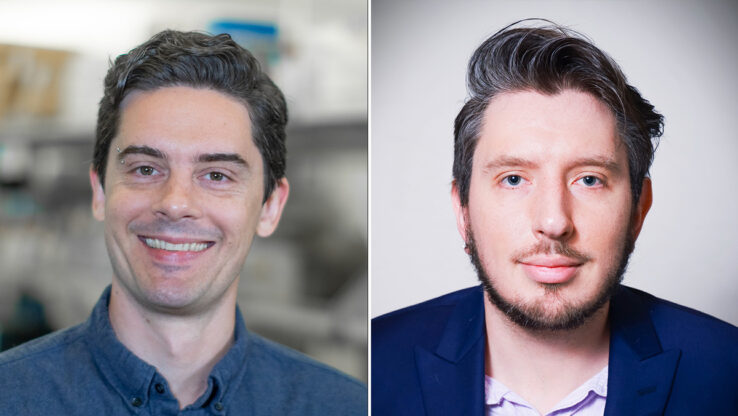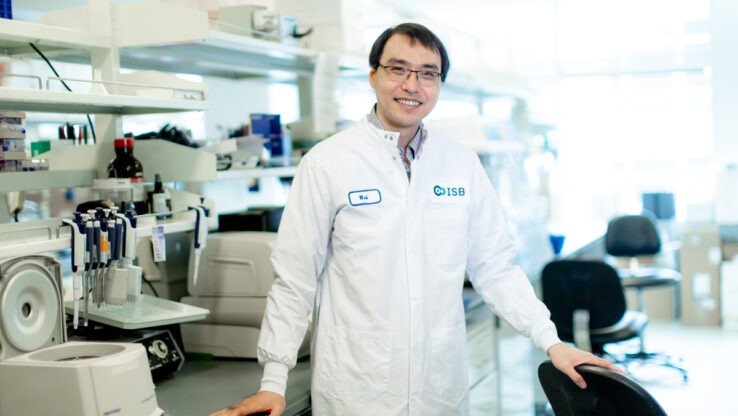Melding ISB and FHCRC Brain Power for Cancer Research
 isbscience.org/news/2014/05/15/melding-isb-and-fhcrc-brain-power-for-cancer-research/
isbscience.org/news/2014/05/15/melding-isb-and-fhcrc-brain-power-for-cancer-research/
(Photo above: ISB’s Dr. Ilya Shmulevich describes his lab’s work in The Cancer Genome Atlas project and how ISB and FHCRC could collaborate.)
Big health challenges require big science. Cancers are prime examples of overwhelmingly complex diseases that need the power of a cross-disciplinary, systems biology approach to decipher the underlying dysfunctional gene networks in order to find ways to prevent and manage the diseases and develop more effective therapies.

ISB’s Dr. Nathan Price, left, chats with FHCRC’s Dr. David Hockenbery and Dr. Eric Holland during a meeting held at Institute for Systems Biology to discuss potential collaborations on cancer research.
On May 6 at Institute for Systems Biology, researchers from ISB and Fred Hutchinson Cancer Research Center – specifically the Human Biology Division – gathered for a meeting of great minds to identify potential areas for collaboration. It was an intimate showcase for commingling ISB’s pioneering systems approach with the depth of cancer biology knowledge from FHCRC.
“We are laying the foundation for a strategic partnership that combines the best of both institutions to attack cancers with systems biology.”
Dr. Nitin Baliga, Senior Vice President and Director of ISB, and project coordinator Dr. Julie Bletz, worked with Dr. Eric Holland, Senior Vice President and Director of the Human Biology Division at FHCRC, to organize the day-long meeting. After introductions, 15 ISB and FHCRC researchers alternated to present their areas of expertise, research challenges, what strengths his/her group could bring to the table and what complementary collaboration the group seeks. The 15 rapid-fire presentations consisted of 15-minute research summaries plus 5 minutes for questions and answers.
The day concluded with group discussions on three topics: potential partnerships and funding opportunities that can be pursued at the investigator level; types of resources both institutions can share and invest in jointly; one or two big problems that both organizations can attack collectively.
“It was a great day, with lots of interesting discussions and potential for collaboration,” said Baliga. “We are laying the foundation for a strategic partnership that combines the best of both institutions to attack cancers with systems biology.”






